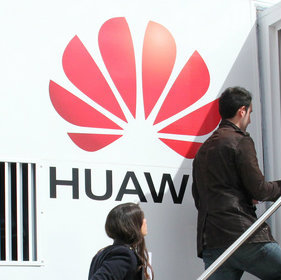Also in today's EMEA regional roundup: Proximus seeks fiber experts; BT offers Symantec endpoint protection tech; Ericsson has seen the future, and it's wacky.

Also in today's EMEA regional roundup: Proximus seeks fiber experts; BT offers Symantec endpoint protection tech; Ericsson has seen the future, and it's wacky.
Huawei has extended its tentacles further into Ireland with the launch of a new research partnership with Trinity College Dublin and the expansion of its existing R&D operation in Cork. The Trinity collaboration will focus on what the Chinese vendor calls "video intelligence" and how artificial intelligence will affect society. Huawei Technologies Co. Ltd , which already has a substantial presence in Ireland through its work with eir, Vodafone and others, says the two projects represent a €17.7 million (US$21 million) investment in the country.
Belgium's Proximus is on the hunt for more than 250 new fiber specialists, data scientists, security experts and digital marketers to help support its "Fiber for Belgium" FTTx rollout. Proximus hopes to reach more than 85% of Belgian businesses and more than half of households with fiber "in the coming years."
BT Group plc (NYSE: BT; London: BTA) has teamed up with Symantec Corp. (Nasdaq: SYMC) to offer BT Device Protection, a cloud-based security service that makes use of Symantec's endpoint protection technology to safeguard the PCs, laptops, smartphones and tablets of the UK's small and midsized businesses from various online threats.
Telensa , the UK company that specializes in connected street lighting and related smart city applications, has been named the global market share leader for the second consecutive year in a study by Northeast Group. Telensa's low-power, wide-area (LPWA) wireless networks attach to light poles and, says the company, can provide city- or region-wide coverage in a matter of days.
As the end of this year rapidly approaches, Ericsson AB (Nasdaq: ERIC) has come up with a range of fairly wacky-sounding predictions of what will be the "hot consumer trends" in 2018. Among the sooths said: "Earphones will become a 24/7 accessory, even when sleeping," and "51 percent of Augmented Reality/Virtual Reality users believe artificial intelligence (AI) will render ads indistinguishable from the actual products." I'll have what they're smoking!
Meanwhile, back in the real world, Ericsson has teamed up with Smart Communications to play a part in the Connected Mangroves project, which aims to help conserve the marine ecosystem of the Bangkung Malapad, an important habitat and ecotourism area in the Philippines. The project combines cloud, machine-to-machine and mobile broadband technology to help the local community better manage the growth of new mangrove saplings. Mangrove forests help protect coastal communities from typhoons, flooding, erosion and other hazards.
It looks like ride-hailing service Uber will be picking up passengers in London well into the new year, despite the city's authority having withdrawn its operating license in September. As the Daily Telegraph reports, Uber's appeal against the decision will not reach the courts until April 2018 and, in the meantime, the controversial service is free to continue operating on the UK capital's streets. (See Uber Crashes Into UK Regulators, Loses London License.)
UK cable operator Virgin Media Inc. (Nasdaq: VMED) is bringing "ultrafast" broadband to Washington -- no, not that Washington, but a town in the north-east of England that shares its name. Up to 9,000 properties in the town could be connected by the end of 2019, says Virgin, bringing promised speeds of up to 300 Mbit/s for residents and 350 Mbit/s for businesses.
— Paul Rainford, Assistant Editor, Europe, Light Reading
About the Author(s)
You May Also Like











